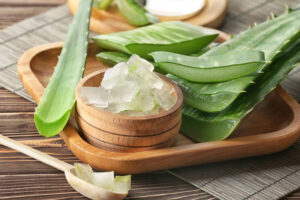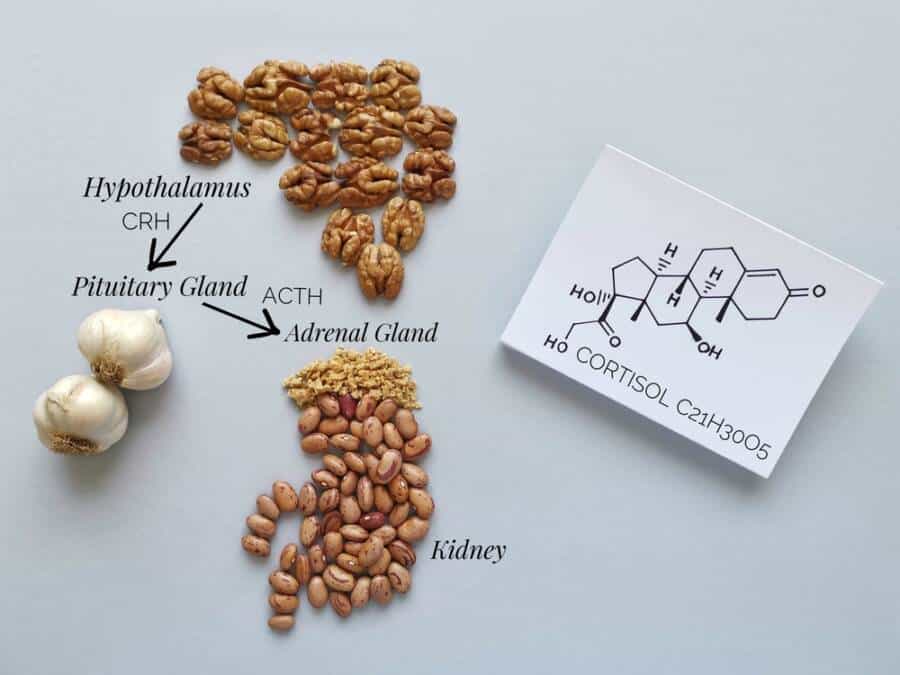Have you ever wondered what else aloe vera is good for?
We have all seen an aloe vera plant around, and to be honest, they are really easy to both grow and upkeep.
They are one of those plants that you can easily grow, and they are a great one to have around since they have some health benefits that can help you in a pinch!
The components of the aloe vera plant are important, and you can easily make use of the soft, clear gel that is inside the leaves for a number of medicinal benefits.
While we all know that the clear gel is useful in cases of sunburn, a lot of us have not explored the many health benefits that this plant could have to its fullest extent.
Aloe vera has been used in traditional medicine worldwide for centuries, with notes being made in countries like Japan, India, Mexico, Egypt, and China, just to name a few! But what other uses other than soothing sunburns does it have, and how is it utilized today?
We have looked into the science behind aloe vera gel and how scientists have attempted to use it in the modern world, along with all the potential health benefits it could have, and brought you the most important ones that you need to keep in mind!
Keep on reading to discover the best way in which aloe vera can improve your health and why you should implement it in your life, with the help of your doctor if you are on a treatment plan!
Do you use aloe vera in your life? How is it useful for you? Let us know in the comments!
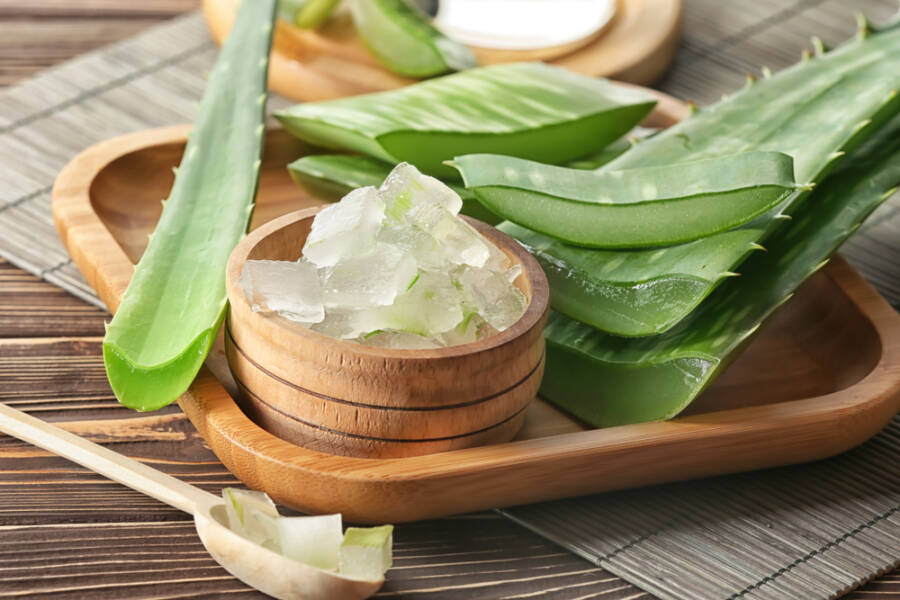
Mouthwash and aloe vera.
You can actually use aloe vera when it comes to your oral health! The plant has been researched and discovered to potentially contain a number of properties that are useful against plaque and gingivitis!
A trial done on 345 subjects, divided into three groups, had them use mouthwash twice a day for 30 days.
Each group got a different type of mouthwash: one that had aloe vera, one that was placebo and had distilled water and one that had the most popular mouthwash germicide, chlorhexidine gluconate.
At the end of the trial, it was discovered that the aloe vera mouthwash was just as effective as the chlorhexidine gluconate one in reducing plaque and gum bleeding when compared with the placebo group!
Another study has shown similar results on a smaller scale since the trial was only 4 days and the placebo was replaced with saline water instead of the distilled one.
Yet, it garnered similar results in a short time.
What these studies show is that there is a potential health benefit to picking an aloe vera-based mouthwash if you are looking to replace your traditional one if you struggle with the likes of gingivitis and dental plaque.
Blood pressure and aloe vera.
Make no mistake: no plant or supplement is a substitute for healthy eating, exercise, and taking your medications, especially if we are talking about high blood pressure. All of these have been recommended by the American Heart Association (AHA) to reduce high blood pressure.
Yet, some studies suggest that using aloe vera in addition to all of these could be useful, despite the limited research on the matter.
In a study done with 90 diabetic patients who were not reliant on insulin, all received a different type of treatment with aloe vera (in addition to their normal one).
One group did not receive any aloe vera treatment; one received a daily pill of 100 mg of aloe vera gel powder in capsule form; and the last received a daily pill of 200 mg of aloe vera gel powder in capsule form.
The researchers then did evaluations of the groups after three and six months, respectively. The results showed that the groups that have been taking the aloe vera capsules have shown a reduction in their diastolic and systolic blood pressures, which could not be seen in the group that did not receive the treatment.
The study concludes that the anti-inflammatory components of the plant (aloe-emodin and aloin) could be the ones that have contributed to this lowering of blood pressure.
Studies done on these two components in vitro and in rat trials have shown that they do have anti-inflammatory properties, but they have yet to be further tested in human trials.
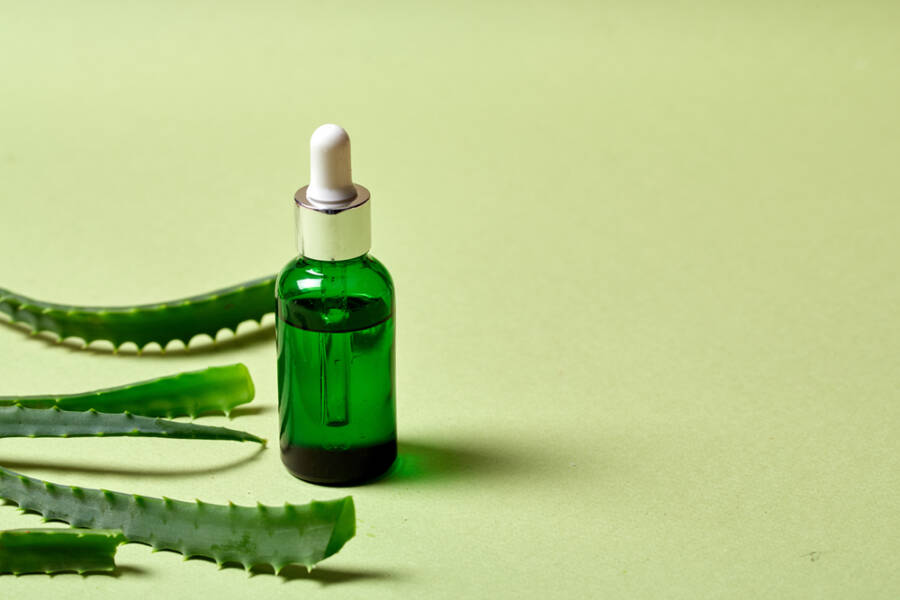
Can aloe vera help with collagen production?
When it comes to moisturizing, it is known that aloe vera is one of the great ingredients for this. This is why it is one of the most commonly used ingredients in face masks since it will leave your skin hydrated.
What’s more, it has been shown that the moisturizing properties of the gel can also end up having some anti-aging properties as well.
Aloe vera is filled with hydrating molecules that are designed to keep your skin moisturized, which are called mucopolysaccharides.
Another ingredient that is filled with these molecules is hyaluronic acid, which is known for both moisturizing and anti-aging properties.
Research done on aloe vera has shown that besides the hydrating properties of the gel, it also ends up activating some cells in the connective tissue (called fibroblasts), which in turn would ramp up the production of elongated fibers and collagen.
Together, the hydrating properties and the collagen-boosting effects can end up helping you get rid of wrinkles and slow down the overall signs of aging.
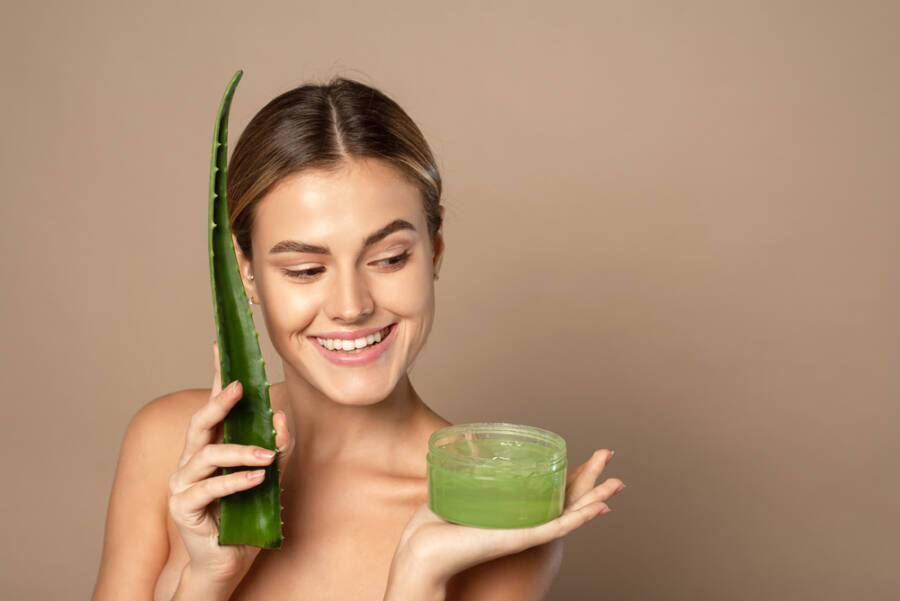
Say bye to skin irritation!
If you have issues with your skin, you can try to use aloe vera, as it has been proven to impact several skin conditions positively. Not only is the gel beneficial when it comes to inflammation, but it has also been proven to be an aid in treating eczema and psoriasis.
The National Psoriasis Foundation (NPF) says that if you use creams and moisturizers that contain even just 0.5 percent aloe vera gel, you can easily reduce scaling and redness.
The foundation also notes that this ingredient is just a complementary and integrative element, as it is used in addition to the psoriasis treatment that you have from the doctor. Aloe vera is the most effective in treating psoriasis, but only in conjunction with the traditional treatment.
When it comes to eczema, a cream that has a combination of olive oil and aloe vera extracts (a topical cream called Olivederma) has been tested, and it has shown to have comparable, at times even superior, benefits to topical steroids when it has been used for at least six weeks.
Studies have also shown that since the gel has antifungal and antibacterial properties in addition to moisturizing ones, it can end up preventing flare-ups in cases of dermatitis, which is the most common way in which eczema presents.
Suppose you have not gotten on the aloe vera train yet. In that case, we recommend you start by either adding an aloe vera moisturizer to your routine or making sure you have an aloe vera gel in case of irritation, eczema, or sunburn!
Indeed, aloe vera’s most common use is for treating sunburn, but what are other home remedies you could use if you do not have the plant or gel around? Check out this article here to discover 10 other home remedies for sunburns!





